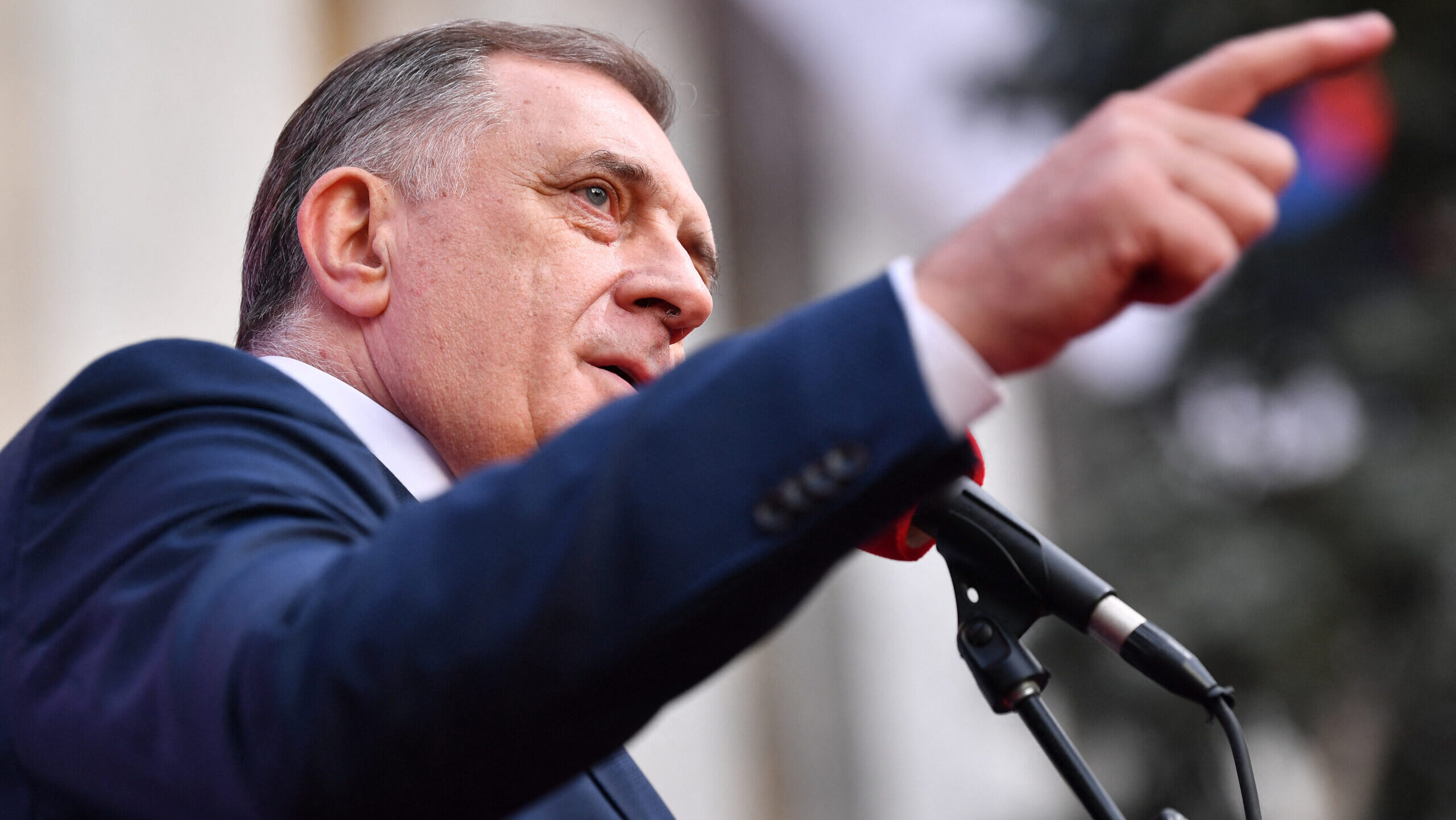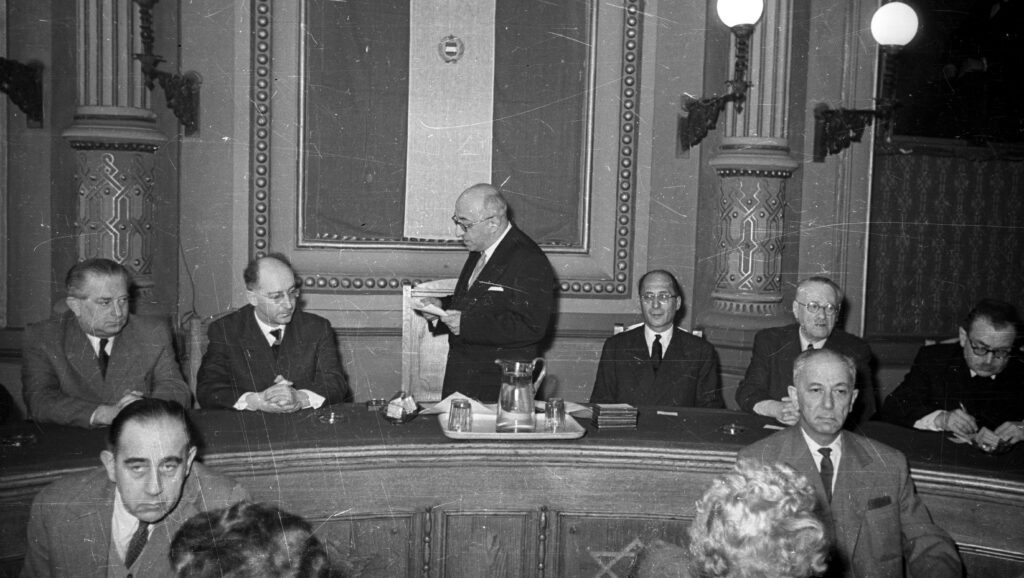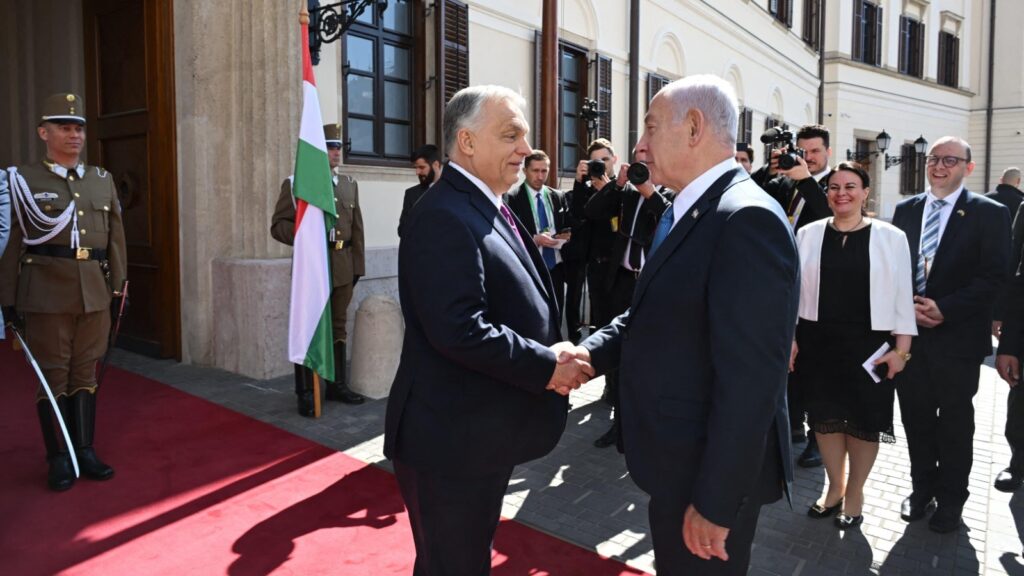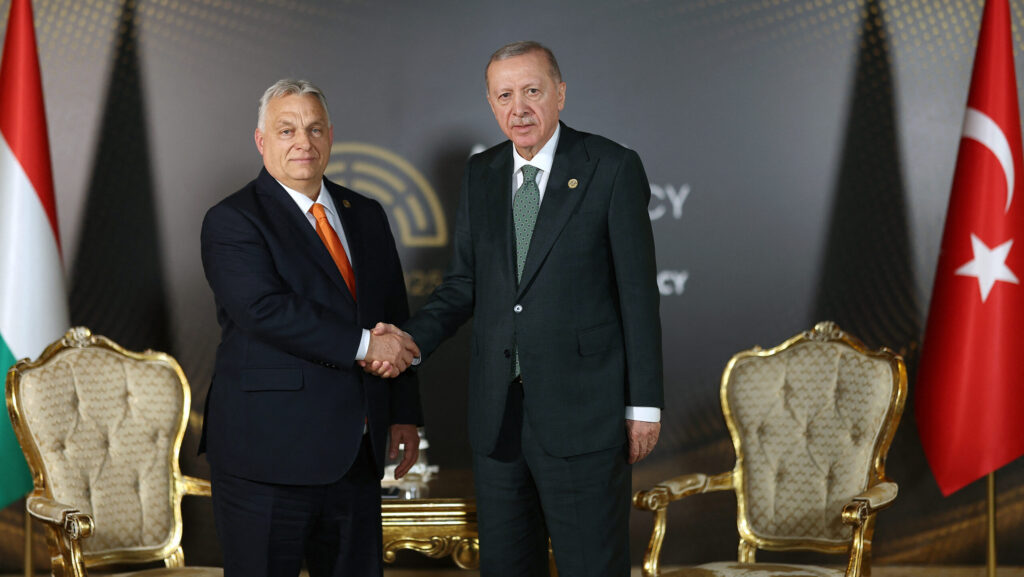Milorad Dodik is the President of Republika Srpska (RS), one of the two—the other is the Federation of Bosnia and Herzegovina—constituent entities of Bosnia and Herzegovina (BiH), a fragile state in the Western Balkans established by the Dayton Agreement in 1995, which brought an end to the Bosnian War. Under one of the most complex state structures in Europe, RS has its own legislation, judiciary, security forces, and executive—all of which are also present at the federal level. The functions of the head of state are carried out by a tripartite presidency—comprising one member from each constituent ethnic group: Serbs, Croats, and Bosniaks. Above all stands the High Representative of the international community, a position vested with extensive powers, including the authority to impose or annul laws, and to remove officials at both the state and entity levels, including elected representatives. Due to its artificial nature and the common and often strained history of the constituent ethnic groups, BiH has always been fraught with political tensions.
However, since 2021 the turmoil has appeared unresolvable. At that time the high representative Valentin Inzko imposed amendments to the country’s Criminal Code that criminalized the denial of genocide, crimes against humanity, and war crimes. A majority of Serbs—including Bosnian Serbs—do not recognize the Srebrenica massacre as genocide, which means that a significant portion of Republika Srpska’s population, including its political leadership, could face imprisonment under the ruling. Dodik, unsurprisingly, refused to comply.
On 26 February the Court of Bosnia and Herzegovina sentenced him to one year in prison and barred him from holding public office for six years, citing his failure to comply with rulings issued by both former and current high representatives, Inzko and Christian Schmidt, respectively . Many, including Hungarian Prime Minister Viktor Orbán, condemned the verdict as politically motivated. Nevertheless, it has triggered a wave of dangerous political developments. Currently, two arrest warrants have been issued for President Dodik by the Court of BiH—one federal, and one international—and the threat of further escalation grows by the day.
While the Bosnian side of the story is well covered in Western media, little is said about Dodik’s. At Hungarian Conservative, however, we believe that every side deserves to be heard—especially in such a significant case, which has already had, and may yet have, further consequences for the broader region, including Hungary. That is why we sent questions to the President of Republika Srpska, who was kind enough to respond. The questions were sent on 15 March.
***
Your trial and the developments that followed once again show that there are fundamental differences between Republika Srpska and the Federation of Bosnia and Herzegovina, the state-level institutions, and the High Representative. Do you see any way in which these disputes could be addressed within the current state structure of Bosnia and Herzegovina?
Obviously, there are differences: essential, administrative, political; differences of every kind. The Serbs living in the Federation of Bosnia and Herzegovina are reduced to the level of a statistical error, they are marginalized. The Federation recognizes Christian Schmidt as High Representative because they see in him yet another mechanism to realize the vision of a unitary Bosnia. This idea of a centralized, unitary state in which Muslim Bosniaks are in majority was unofficially promised to them back in Dayton. That is why, since its signing, they have worked in every possible way—assisted by parts of the international community—to weaken Republika Srpska and to create and strengthen the administrative apparatus at the level of Bosnia and Herzegovina.
It is little known that, according to the Dayton Agreement, only three ministers were envisaged at the joint level within the Council of Ministers—not ministries, but ministers. Now, one can see the sprawling apparatus that has been built over the years, with the wholehearted support of parts of the international community, high representatives, and the Constitutional Court of Bosnia and Herzegovina. They are attempting to turn the Council of Ministers into a full-fledged government. They have invented countless agencies to ‘cover’ all the competencies they were never granted under Dayton.
‘The existing structure at the level of Bosnia and Herzegovina is entirely anti-Dayton, anti-constitutional’
The existing structure at the level of Bosnia and Herzegovina is entirely anti-Dayton, anti-constitutional—and it is time to say ‘stop’. Bosnia and Herzegovina must return to the letter of Dayton. There is no other option. The continuation of unconstitutional and illegal actions by imposed institutions seeks to humiliate Republika Srpska and destroy the lives of our citizens. Everything—truly everything—that these institutions are doing must be stopped, and we are doing so uncompromisingly. Because, above all, there is Republika Srpska and the sacrifices made for its creation. There will be no negotiations or discussions about that. The leadership of Republika Srpska stands unified and determined in defending the Dayton Peace Agreement and its Annex IV: the Constitution of Bosnia and Herzegovina.
In the days following the conviction, you announced a series of legislative measures, primarily aimed at curbing the powers of state-level institutions and the High Representative within Republika Srpska. Can this be interpreted as a quasi-declaration of independence?
We are constantly fighting institutionally for respect for the Constitution of Bosnia and Herzegovina and the Constitution of Republika Srpska. The process of adopting a new constitution should be understood in this context, as it represents an expression of our political maturity, sovereignty, and our will and determination to improve the 1992 Constitution of Republika Srpska, which remains the political and legal foundation of our entity. We have decided to take this crucial step in order to ensure legal certainty, stability, and a long-term, prosperous future for Republika Srpska.
Let me remind you that Republika Srpska brought its sovereignty into the state union of Bosnia and Herzegovina in 1995, when we agreed to and signed the Dayton Agreement. Since that day comprehensive pressure on us has not stopped, through high representatives and the Constitutional Court of Bosnia and Herzegovina, with the undisguised goal of altering the legal and political framework of Srpska without formal changes, and creating a unitary Bosnia and Herzegovina.
Republika Srpska has continuously defended the Dayton Agreement through its institutions, by adopting dozens of laws, decisions and conclusions, tirelessly repeating that no constitutional change beyond what was agreed in Dayton is acceptable, since it threatens the legal stability and security of its citizens.
Our key and only guideline in adopting a new Constitution is the protection of our rights and a return to the original Dayton Agreement, which we are obliged to do out of respect for the 34,000 victims of the Defence and Patriotic War.
The draft of the new Constitution defines Republika Srpska as a sovereign constitutional entity, founded on the will of the people as expressed through elections and the referendum. It is the Republic of the Serbian people, but also of all other peoples and citizens living on its territory. This constitutional basis guarantees equality and protection of the interests of all its citizens, regardless of ethnicity or religion.
We are not only eager but unwavering in our commitment to restoring to Republika Srpska what rightfully belongs to it under the Dayton Agreement, and in reaffirming its strength and dedication to justice and freedom. Republika Srpska has a solid socio-political continuity, and the new Constitution is an internal issue—one that falls solely within the competence of the National Assembly of Republika Srpska. It is now in the constitutional procedure, it was adopted in the form of a draft, and a broad public debate has begun in which the entire society, and especially the expert public, expresses its opinion. We have embarked on this process very thoughtfully, and we firmly reject the creation of a Muslim, unitary, Bosniak state—or, as Sarajevo careerists prefer to call it, a ‘civil’ Bosnia.
You gave a very emotional speech on 13 March during the vote on the draft in the National Assembly. One particularly fiery moment stood out, when you shouted: ‘You want to arrest us? Come on, try to arrest us,’ in reference to the 12 March decision by the state-level court issuing arrest warrants for you, RS Prime Minister Radovan Višković, and President of the National Assembly Nenad Stevandić. What will happen if they actually come and try?
No, they will not come. In BiH, there are only joint law enforcement bodies consisting of members of the authorities of Republika Srpska and the Federation, as well as the three constituent peoples. We are representatives of the highest authority in Republika Srpska, and we have acted solely in accordance with the constitutions and laws of both Bosnia and Herzegovina and Republika Srpska—not based on the writings of third-rate diplomats who call themselves high representatives, nor on the rulings of the truncated Constitutional Court of BiH, which has presumed it can amend the Constitution and laws through its decisions.
According to many, the legal proceedings against you resemble a lot to what has been done with US President Donald Trump during the 2024 presidential election campaign. However, Secretary of State Marco Rubio condemned your actions stating they ‘undermine BiH’s constitutional order.’ Do you think there is a chance you could get Washington’s backing? Critical minerals seems to be a key factor driving US foreign policy, and RS has some unexploited reserves…
We are not naive nor acting recklessly. All pressures, impositions, dismissals, conditionings, and even the political and staged process against me as the President of Republika Srpska are aimed at seizing our property. We are fully aware that the ultimate goal of our enemies is to weaken Republika Srpska, reduce it to the level of a mere administrative unit, and strip it of its assets. All these years the goal has been to seize the property of Republika Srpska in order to misuse our wealth and public goods as they wish.
Obviously, we have loudly opposed it —and we are not giving up on protecting our territory. Only the institutions of Republika Srpska will be consulted and will decide on the use of our natural resources—no one else. According to the Constitution of Bosnia and Herzegovina, only Republika Srpska and the Federation of Bosnia and Herzegovina possess property rights.
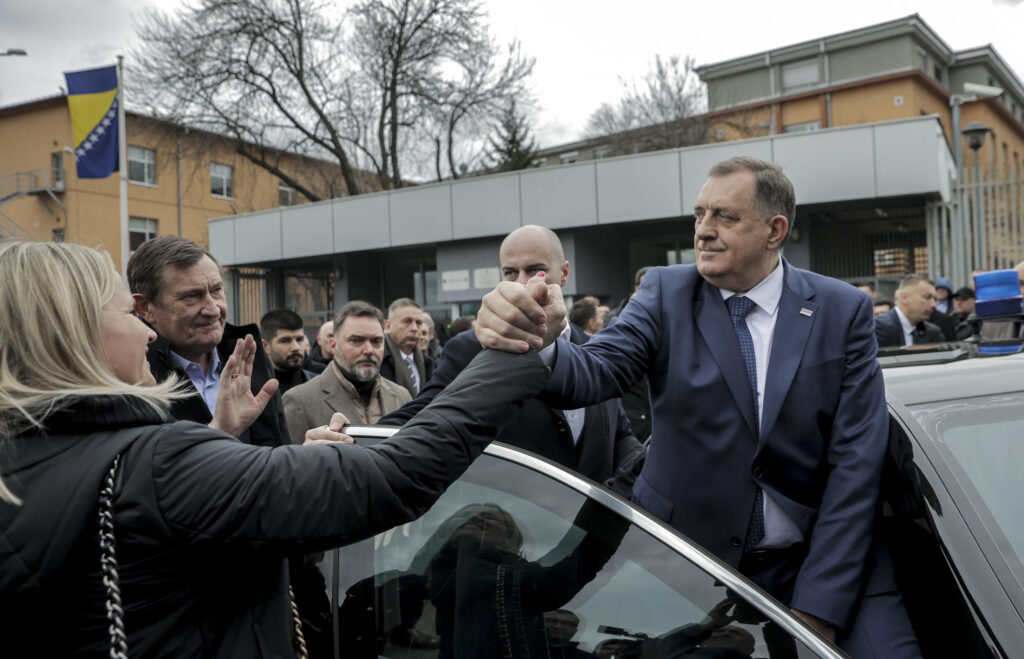
However, you have the support of at least one major power: Russia. Because of this, you are often labelled in Western media as ‘Putin’s puppet’, with claims that the current tensions are part of Moscow’s efforts to destabilize the region. How do you respond to these accusations? And in what ways could Russia help RS in its current standoff?
The Russian Federation has been a long-standing sincere friend of Republika Srpska and the Serbian people. I am honoured to have had the opportunity to speak in continuity with the President of the Russian Federation Vladimir Putin. Russia is our partner and has politically like-minded position since it is always on the side of peace, the peace that implies the defence of national and strategic interests, and these are our common goals. Our Russian friends have shown that in difficult times they understand the Serbian people and Republika Srpska.
You also maintain a close relationship with Hungarian Prime Minister Viktor Orbán: you visited Budapest recently, on 17 February, and spoke with him by phone on 6 March. Have you discussed the current developments with the Hungarian prime minister since then? Do you expect Hungary’s support at the European Union level if tensions continue to escalate?
BiH is facing the most serious constitutional crisis since its inception, and this crisis will be resolved through political and legal means. The fact that Sarajevo is making noise out of its impotence and trying to present that there is a security crisis in BiH represents pure lies and manipulation.
The Hungarian state and the Hungarian people are among the most patriotic in Europe today, determined to defend their borders, sovereignty and identity, at the same time in cooperation with their neighbours and other states and peoples of Europe and the world.
‘Orbán is the leader of a free Europe’
The friendship, support and assistance that Hungary has provided to Republika Srpska on numerous occasions arouses gratitude, admiration, and an obligation to further deepen and improve the exceptional bilateral relations between the two countries, and especially the friendship between the Serbian and Hungarian people.
Republika Srpska gives its absolute support to Hungarian Prime Minister Viktor Orbán when it comes to the strong and dedicated fight for national sovereignty. Orbán is the leader of a free Europe, he is persistent in his political principles, and his concept of Europe is acceptable to Republika Srpska.
How do you envision the future of your country over the next two to three years?
Republika Srpska will continue to build and improve its positions, both domestically and internationally. Freed from the pressures of unelected foreigners and political ideologies that seek to threaten its sovereignty, Republika Srpska will become even stronger and more stable, both politically and economically.
Economic growth coupled with rule of law and institutions serving the well-being of our people will enable Republika Srpska to be a legally and politically independent, stable country within the region.
‘Republika Srpska is fighting for the sovereignty of both itself and Bosnia and Herzegovina’
Internationally, Republika Srpska will continue to strengthen its diplomatic and economic relations with states and institutions that respect its sovereignty and national interests. Alignment with modern global trends and close cooperation with countries that uphold the principles of freedom and sovereign decision-making will form the foundation for establishing new partnerships on the international stage.
In all of this, the most important factor will remain the will of the people of Republika Srpska, which will continue to be the basis of all our political decisions and activities. Republika Srpska is able to independently decide on its future and to resist external influence that is contrary to our interests.
If you could send one message to the people of the Western world—to help them understand the goals and motives behind the actions of Republika Srpska in the current situation—what would it be?
The system of Bosnia and Herzegovina is multi-layered, its history is complicated and difficult. Republika Srpska is fighting for the sovereignty of both itself and Bosnia and Herzegovina, but exclusively in accordance with the Dayton Peace Agreement. The leadership of Republika Srpska is the only defender of the constitution in Bosnia and Herzegovina, and every democratic political leader and community in the world can understand what it means to fight for the right and sovereignty in decision-making, against foreign interventionism.
Read more on Milorad Dodik:

